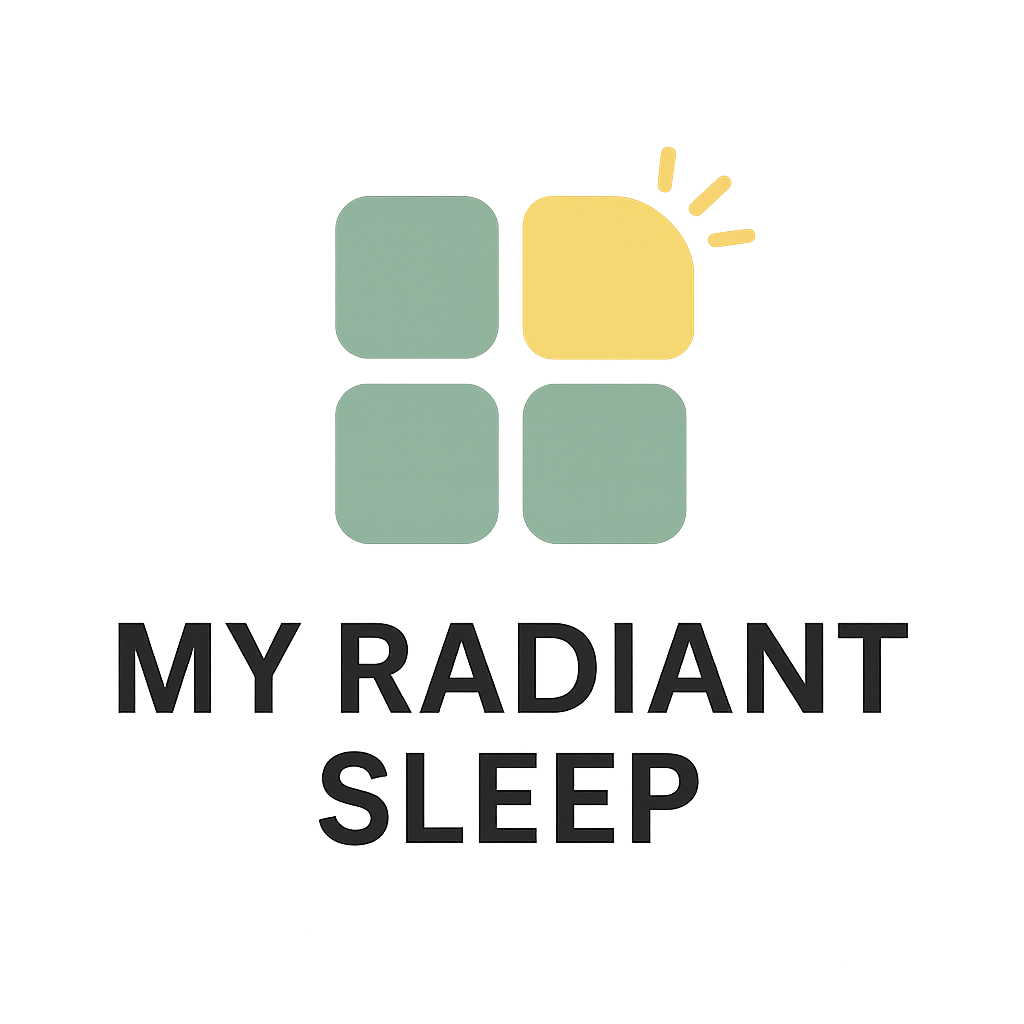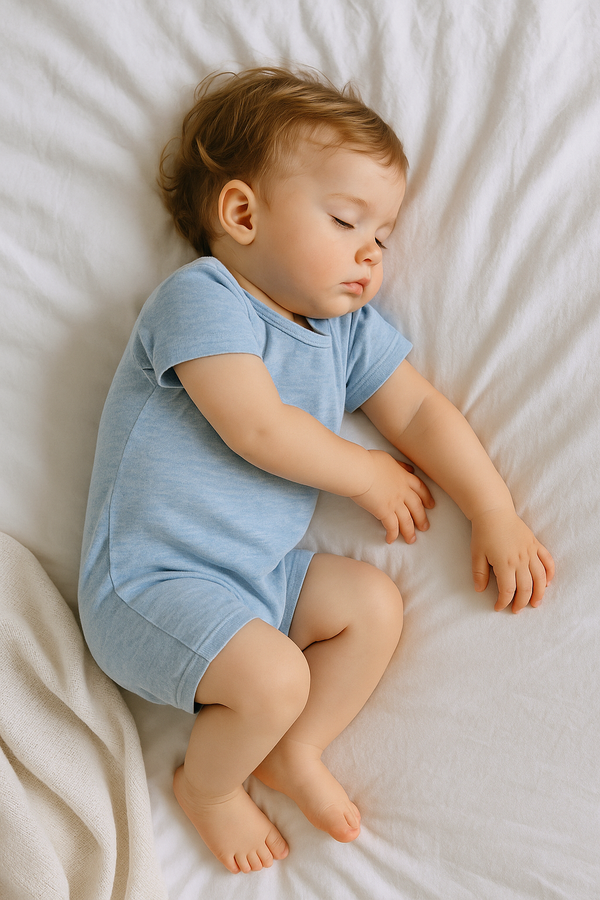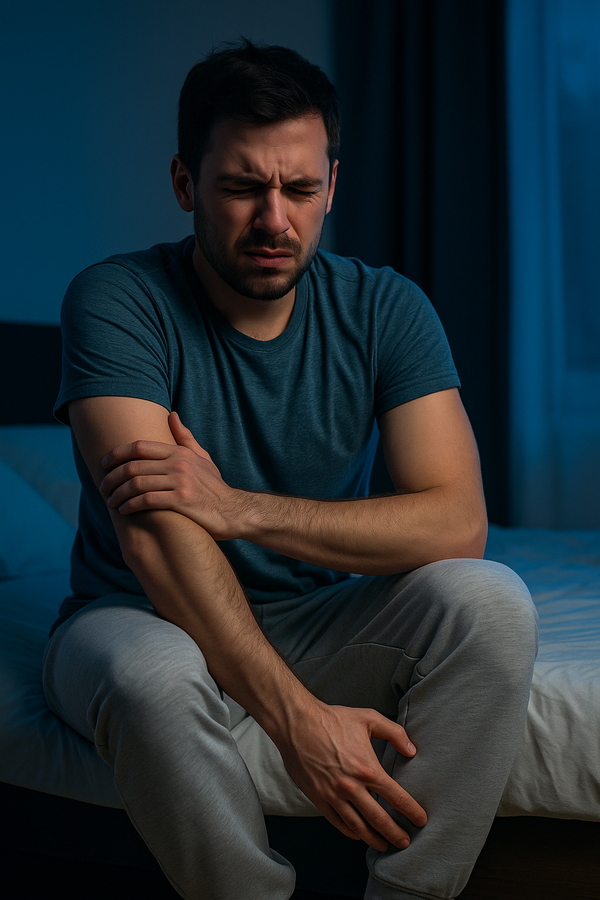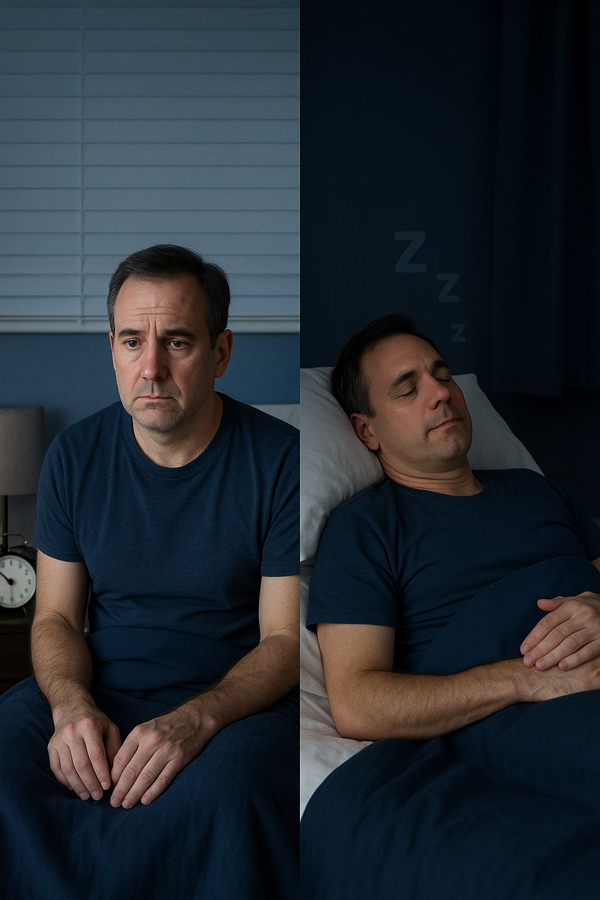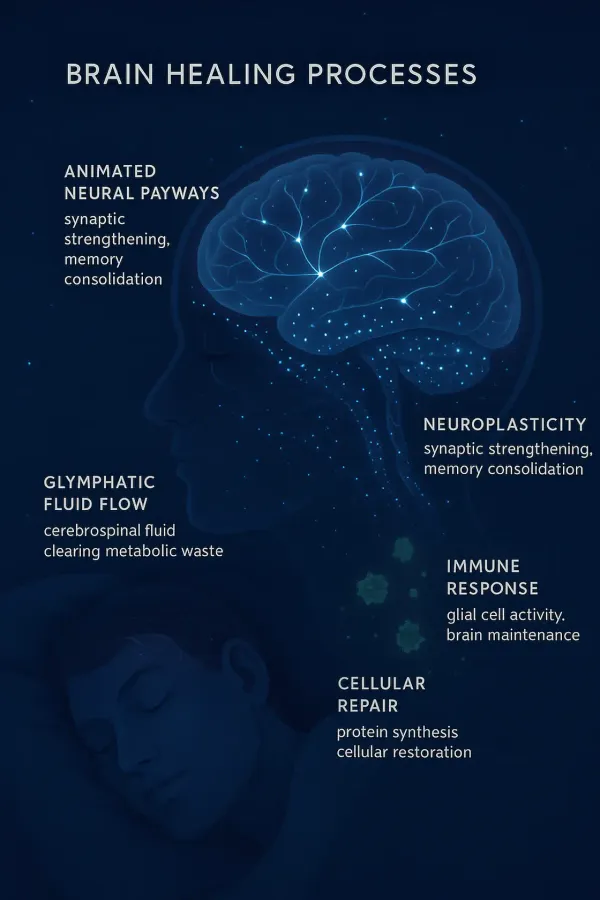(Last Update: 11/09/2025)
Do you wake up tired, snore loudly, or experience constant fatigue? A sleep study may be necessary to diagnose sleep disorders, such as sleep apnea, restless leg syndrome, or other underlying issues. But before scheduling one, many wonder: how much does a sleep study cost?
This guide explores in-lab and at-home options, including what each entails, and guides navigating insurance coverage and out-of-pocket expenses.
You’ll also gain insight into pricing variations, cost-saving tips, and answers to common questions, so you can approach your sleep disorder testing with confidence and clarity.
Types of Sleep Studies and Their Respective Costs

- Sleep studies measure your sleep stages, true sleep time, heart rate, breathing patterns, peripheral arterial tone, brain waves, and other physiological parameters.
- In-lab tests (polysomnography) are the most complete—technicians monitor you overnight, often with chest sensors, wrist sensors, and video chat capabilities.
- Home sleep studies, done in your own bed, focus on obstructive sleep apnea (OSA)—they’re quicker, often just one night, though some require one to two nights for accuracy.
- Results come as a personalized sleep report, automatically shared with your healthcare professional for therapy recommendation or apnea therapy.
So, sleep testing varies based on its purpose and setting. The two most common types are in-lab polysomnography (also referred to as in-lab sleep studies or in-lab sleep tests) and at-home sleep apnea tests (HSATs) (also known as home sleep studies, at-home sleep studies, at-home sleep tests, and at-home sleep tests).
1. In-Lab Polysomnography (PSG)
This gold-standard test is performed overnight in a medical facility under the supervision of a sleep technologist. It monitors brain activity, breathing patterns, oxygen levels, and muscle movement.
- Typical cost: $1,000 to $3,500 without insurance
- According to Eric Suni from Sleep Foundation, a lab sleep study can range widely depending on the clinic and services included.
2. Home Sleep Apnea Study: A More Affordable Alternative
A convenient, lower-cost option for those suspected of having obstructive sleep apnea (OSA). You take the equipment home and sleep in your bed.
- Typical cost: $150 to $600
- As noted by Lofta’s clinical team, their direct-to-consumer sleep test starts around $189.
For many, a home sleep apnea study offers a convenient and lower-cost option. These tests, often covered by insurance, are designed to collect enough data to diagnose sleep apnea without a hospital stay.
A pulse oximeter, nasal cannula, and chest sensor monitor key indicators, including oxygen levels, breathing pauses, and sleep disruptions. While not as comprehensive as a lab study, home testing is often sufficient for diagnosing moderate to severe sleep apnea, and a sleep physician interprets results.
If you're questioning the value of a sleep study, understanding why we sleep in the first place can help clarify its importance for long-term health.
Sleep Apnea Diagnosis and the Role of a Sleep Lab
If your doctor suspects obstructive sleep apnea, a visit to a sleep lab may be your first step toward diagnosis. An overnight study captures brain wave activity, blood oxygen levels, body position, and sleep patterns using FDA-approved equipment.
This detailed sleep data helps sleep specialists detect how often your breathing stops or becomes shallow, which is quantified by the apnea-hypopnea index (AHI). For individuals with severe obstructive sleep apnea, a lab-based test offers the most accurate results to guide treatment like CPAP therapy.
Working with Sleep Specialists to Improve Sleep Health
Sleep specialists are board-certified in sleep medicine and play a crucial role in interpreting test results and recommending treatments. After diagnosing sleep apnea, they may prescribe CPAP equipment or other forms of PAP machine therapy to reduce breathing interruptions.
A core sleep routine is essential for recovery, especially after a sleep study reveals patterns such as disrupted REM or insufficient deep sleep.
Factors That Influence Sleep Study Pricing

Type of Facility
Sleep studies can be performed in hospitals, independent sleep centers, or at home. The type of facility often determines the base price. Many insurance providers, as well as your specific insurance company or insurance provider, may have different coverage policies depending on the facility.
Type of Sleep Study
Polysomnography (in-lab) is generally more expensive than home sleep apnea tests.
Complexity of the Study
The more complex the study (e.g., additional monitoring or split-night studies), the higher the cost. The need for a specific treatment plan can also affect the type and cost of the study.
Equipment Used
Some studies require specialized equipment, which can increase the price. Durable medical equipment may be necessary for ongoing therapy, which can increase the total cost.
Unsure if your mattress is helping or hurting after your test? These mattresses with trial periods allow you to test the comfort and support without any commitment.
• Type of Facility
- Hospitals tend to charge more due to overhead costs.
- Independent sleep clinics or telehealth providers may offer reduced pricing.
• Geographic Location
- Urban areas generally have higher rates than rural ones.
- For example, CareCredit reports that tests in California may be 20–30% more expensive than in Texas.
• Duration and Complexity
- Some sleep studies may require split-night testing or extended monitoring.
- Adding a CPAP titration can increase the cost by $500 to $1,000.
• Equipment and Staffing
- Lab studies include sensors, overnight staff, and physician review fees.
- At-home kits may have lower overhead.
For those looking to improve sleep naturally after testing, these expert sleep tips can support better rest alongside any medical recommendations.
Cost Breakdown: One Night vs. In-Lab
- A home sleep study can cost as little as $150–$300 (sometimes up to $600–$1,000) for apnea-focused analysis and includes a kit, analysis, and doctor review.
- In-lab polysomnography typically costs $1,000–$3,000 on average and may reach $10,000+ in complex cases.
- Split-night studies, where diagnosis and continuous positive airway pressure (CPAP) set-up occur during one night, balance cost and convenience.

Insurance Coverage Specifics and Out-of-Pocket Expectations

Insurance, Medicaid & Savings
- Insurance (including Medicare/Medicaid) often covers sleep studies and apnea therapy—especially if a doctor recommends it and you're diagnosed with OSA.
- If uncovered, out-of-pocket costs vary—Georgia’s cash rates average $776–$1,230 for in-lab studies.
- Ask your provider about medical necessity, prior authorization, or split-night options to save money.
- Home studies are the most cost-effective path in most cases, especially when prescribed specifically for OSA.
Insurance coverage usually depends on:
- A formal diagnosis or medical necessity documented by your physician
- Pre-authorization or referral requirements
- Use of appropriate diagnostic codes
- Testing at an accredited sleep center
According to Verywell Health, sleep studies conducted at in-network facilities are often fully covered, though copays or coinsurance may still apply.
Typical Out-of-Pocket Costs
Even with insurance, you’ll likely face some out-of-pocket expenses depending on your plan details:
- Deductibles: These can range from $500 to $2,000
- Copays/Coinsurance: Typically 10%–50% of the total study cost
- Non-covered services: Fees for interpretation, consultation, or follow-ups may not be included
Be sure to clarify these details with your insurance provider and the sleep clinic in advance to avoid any surprises.
What If You’re Uninsured?
If you don’t have insurance, you’ll be responsible for covering the entire cost of the sleep study. On average:
- In-lab sleep studies range from $1,500 to $3,000
- Home sleep tests usually cost between $150 and $600
Many clinics offer cash-pay discounts or financing options, so it’s essential to inquire about them upfront. If cost is a concern, consider starting with a home sleep test and discussing next steps with your doctor.
If you've been diagnosed with sleep apnea, your mattress and overall sleep setup could significantly affect nightly recovery and long-term sleep quality.

Home vs. Lab Study Cost Comparisons
Home Sleep Tests: Pros and Cons
- Lower cost: $150–$600
- Convenient: Done in your bed
- Best for: Moderate to severe OSA screening
However, as Aeroflow Sleep explains, HSATs are less comprehensive. They may miss conditions like periodic limb movement disorder or central sleep apnea.
In-Lab Tests: Pros and Cons
- Higher cost: $1,000–$3,500
- Most comprehensive: Multiple parameters measured
- Best for: Complex cases or uncertain diagnoses
According to SleepCare Online, many patients start with an HSAT and only escalate to in-lab tests if results are inconclusive.
Choosing What’s Right: Three Key Questions
Ask yourself (and your doctor) these questions to determine the best route:
- Do I exhibit symptoms of OSA? (snoring, breathing pauses, daytime fatigue)
- Are there other sleep problems (e.g., insomnia, narcolepsy) that require brain wave monitoring?
- Is convenience and cost a priority? (If yes, a one-night home study may suffice.)
If you have basic OSA signs, a home study often provides enough information. But more complex conditions may require an in-lab polysomnograph.
Ways to Reduce Costs and Find Affordable Options

Ask for a Referral
One of the simplest ways to save on a sleep study is to ask your doctor for a referral to an in-network sleep lab. Insurance companies are more likely to provide full or partial coverage when the test is deemed medically necessary and performed at an approved facility.
Use HSA/FSA Funds
If you have a Health Savings Account (HSA) or Flexible Spending Account (FSA), you can use these pre-tax dollars to pay for both in-lab and at-home sleep studies since these tests are considered qualified medical expenses.
Compare Prices
Not all sleep studies cost the same, especially when comparing lab-based testing to at-home options. Platforms like SleepTest.com allow you to explore affordable home test kits, with packages starting at just $189, which includes a physician review.
Explore Financial Assistance
Some sleep centers, particularly those affiliated with university hospitals or nonprofit medical institutions, offer sliding-scale pricing or financial aid to patients who qualify.
People with chronic insomnia or obstructive sleep apnea can benefit from these mattress recommendations that align with medical needs uncovered during a sleep study.
What’s Included in Sleep Study Pricing?

When comparing sleep studies, it’s essential to know what’s included in the quoted price. According to Sleep Foundation, your fee may cover:
Please note that additional costs, such as equipment (e.g., CPAP machines), follow-up appointments, or treatment devices, may not be included in the initial price.
In-Lab Study
- Room and equipment fees
- Technician supervision
- Real-time data collection
- Scoring and interpretation by a board-certified physician
- Written diagnostic report
Home Sleep Test
- Shipment of the testing device
- Instructions and support
- Device return
- Data upload and analysis
- Physician review and diagnosis
Always request an itemized quote in advance.
If sleep discomfort persists after testing, consider upgrading your current setup with a top-rated mattress topper to provide added pressure relief and cooling support.
Consulting a Sleep Specialist: Understanding Test Results and Next Steps
After completing your sleep study, a sleep specialist reviews your data and explains the findings in simple terms. The consultation often happens at a sleep clinic, where graphs of your breathing patterns, oxygen levels, and brain wave measurements help pinpoint the cause of fatigue or snoring.
A personalized plan may include:
- Adjusting daily habits to improve sleep patterns
- Using a continuous positive airway pressure (CPAP) device for apnea
- Exploring treatment options for insomnia or restless leg syndrome
Meeting with a specialist ensures the sleep study cost truly pays off. You’ll understand how your body sleeps and what steps can lead to lasting, restorative rest.
How Insurance Companies Determine Sleep Study Coverage and Deductible Impact
Your final bill for a sleep study depends heavily on how your insurance company classifies the procedure. Some plans treat in-lab testing as preventive care, while others apply it to a high deductible or partial coverage only.
Here’s how coverage can vary:
- In-network providers usually mean lower costs
- Home sleep studies may require separate approval
- Out-of-network labs can increase out-of-pocket expenses
- Certain health insurance plans include one test per year
To stay informed, ask your insurer for written details on preauthorization, copays, and additional costs before your appointment. This step ensures you know exactly how much your sleep study cost will be after insurance adjustments.
Why Accurate Results Depend on Proper Preparation
Accurate sleep test results start with good preparation. Whether doing an at-home sleep apnea test or an in-lab study, follow your technician’s guidance to achieve normal sleep conditions.
Avoid caffeine, alcohol, and electronics before bed, and aim for a relaxed mindset. These habits help technicians capture authentic data on breathing and daytime sleepiness.
Tips for best results:
- Arrive early and bring comfortable clothing
- Follow pre-test dietary recommendations
- Maintain your regular bedtime routine
By cooperating fully, you’ll ensure the study produces accurate results without needing a retest — saving both time and money.
Home and lab sleep test price differences by U.S. region

Urban clinics may charge more but also offer newer equipment and quicker appointments.
After completing a sleep test, don’t underestimate how much your sleep environment setup can enhance or disrupt your recovery progress.
Summed Up in Three Points
1. Home vs. lab – home tests are cheaper (hundreds), in-lab tests are thorough but costlier (thousands).
- 2. Insurance helps, especially when a doctor recommends it.
- 3. Ask three key questions to decide what you need: focus, budget, and complexity.
For Best Results
- Aim for at least 4–6 hours of sleep during a one-night home study
- Maintain a consistent sleep routine (bedtime, environment, reduced cell phone’s Bluetooth interference).
- A simple bedtime routine, done in your own bed, can enhance data collection and help you fall asleep naturally.
- After your study, follow your doctor's review and adhere to any therapy recommendations for optimal outcomes.
What Happens After the Test?
- Once data are collected via Bluetooth-enabled sensors tracking heart rate, peripheral arterial tone, breathing, and motion, you’ll get a detailed personalized sleep report.
- A doctor reviews this and offers a therapy recommendation—often including CPAP, apnea therapy, or lifestyle advice.
- Treatment (like a CPAP) may require rental or purchase, sometimes with $600 down + $300/month
Early diagnosis and therapy can greatly improve your overall health, reduce cardiovascular risk, and help you fall asleep more easily with a better sleep routine and bedtime routine.
Cost Disclaimer:
All prices mentioned are based on national averages reported by reputable sources. Actual costs may vary depending on your provider, insurance plan, and geographic location. Always contact your sleep center or insurer directly to confirm pricing before proceeding.
Conclusion
A sleep study can change your life by uncovering the root causes of poor sleep, and treatment starts with understanding what you’re paying for.
Costs range from as low as $150 for an at-home test to over $3,000 for comprehensive lab analysis, with insurance, location, and provider type all playing major roles.
Before scheduling a study, compare options, ask your doctor about referrals, and verify insurance coverage. Sleep is the foundation of your well-being—invest in it wisely.
📌 Bookmark this guide for future reference, and share it with a friend or loved one exploring their sleep health options!
FAQs
How much does an in-lab sleep study cost with insurance?
With insurance, an in-lab sleep study typically costs between $300 and $800 out-of-pocket, after deductibles and coinsurance. Coverage varies depending on your plan, provider network, and pre-authorization requirements. Please check with your insurer to confirm the exact reimbursement and eligibility details.
How much do sleep studies cost without insurance?
Without insurance, an in-lab sleep study usually costs $1,500 to $3,000, while a home sleep apnea test ranges from $150 to $600. Some providers offer cash-pay discounts or payment plans, so ask about financial assistance options before scheduling your sleep study.
Does insurance pay for sleep studies?
Yes, most insurance plans—including Medicare—cover sleep studies when they’re deemed medically necessary. Coverage depends on the test type, provider credentials, and your specific policy. In-network labs and physician referrals increase the likelihood of full or partial coverage for eligible patients.
What is the cost of a sleep study test?
Sleep study costs vary depending on the setting and insurance status. In-lab tests range from $1,000 to $3,000, while home tests cost $150 to $600. With insurance, patients may only pay deductibles or copays. Pricing depends on your provider, location, and coverage terms.
Is a sleep study worth it?
Yes, a sleep study is often worth the cost, especially if you experience loud snoring, fatigue, or suspected sleep apnea. Early diagnosis helps improve sleep quality, reduce health risks, and may lead to effective treatment like CPAP therapy, improving long-term sleep health.
